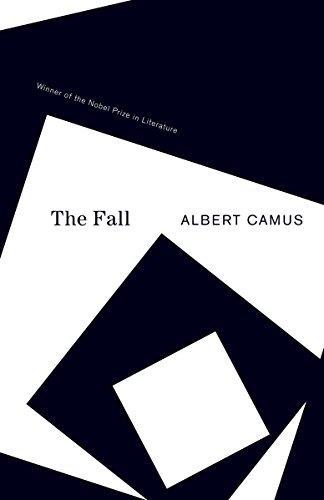Julia_98 reviewed The Fall by Albert Camus
Confession in the Shadows: Self, Guilt, and Judgment in Albert Camus’ The Fall
5 stars
Albert Camus’ The Fall (La Chute, 1956) is a strikingly original and philosophically charged novel that unfolds entirely through the monologue of its narrator, Jean-Baptiste Clamence. Set in the seedy bars and fog-laden canals of Amsterdam, the novel is structured as a confessional conversation between Clamence and an unnamed interlocutor — a passive presence who never speaks, allowing the reader to become the silent witness to Clamence’s self-exposure.
Once a respected Parisian lawyer, Clamence gradually reveals how a single moment of inaction — his failure to save a woman from drowning — catalyzed a deep crisis of conscience. The novel traces his descent from a life of perceived virtue to the role of a self-declared “judge-penitent,” a man who confesses not to absolve himself but to implicate others in the same hypocrisy he now sees in himself.
Camus constructs The Fall as a psychological and moral examination of …
Albert Camus’ The Fall (La Chute, 1956) is a strikingly original and philosophically charged novel that unfolds entirely through the monologue of its narrator, Jean-Baptiste Clamence. Set in the seedy bars and fog-laden canals of Amsterdam, the novel is structured as a confessional conversation between Clamence and an unnamed interlocutor — a passive presence who never speaks, allowing the reader to become the silent witness to Clamence’s self-exposure.
Once a respected Parisian lawyer, Clamence gradually reveals how a single moment of inaction — his failure to save a woman from drowning — catalyzed a deep crisis of conscience. The novel traces his descent from a life of perceived virtue to the role of a self-declared “judge-penitent,” a man who confesses not to absolve himself but to implicate others in the same hypocrisy he now sees in himself.
Camus constructs The Fall as a psychological and moral examination of guilt, ego, and the human tendency to judge — even while hiding behind masks of decency. The narrative is layered with irony and contradiction: Clamence’s self-awareness is both sharp and evasive, illuminating the complexity of human motivation and moral ambiguity.
Stylistically, the novel departs from Camus’ earlier, more restrained prose. Here, the voice is theatrical, rhetorical, even seductive — a performance of honesty that may be as manipulative as it is revelatory.
What makes The Fall enduringly powerful is its refusal to offer comfort. It challenges the reader not just to understand Clamence, but to recognize his reflection in themselves. Guilt, Camus suggests, is not rare — it is universal, and our need to justify ourselves is part of our shared human condition.
This short, dense work remains one of Camus’ most haunting and provocative achievements.

